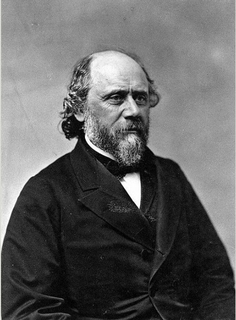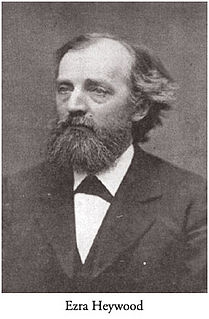A Quote by Fisher Ames
All such men are, or ought to be, agreed, that simple governments are despotisms; and of all despotisms, a democracy, though the least durable, is the most violent.
Related Quotes
The whole conception of a God is a conception derived from the ancient oriental despotisms. It is a conception quite unworthy of free men. We ought to stand up and look the world frankly in the face. We ought to make the best we can of the world, and if it is not so good as we wish, after all it will still be better than what these others have made of it in all these ages.
Nothing is more deceptive or more dangerous than the pretence of a desire to simplify government. The simplest governments are despotisms; the next simplest, limited monarchies; but all republics, all governments of law, must impose numerous limitations and qualifications of authority, and give many positive and many qualified rights.
Unlike despotisms, modern democracies are not supposed promiscuously to accumulate property and then charge their taxpayers to maintain it. But that is what they do. Governments are always trying to extend their responsibilities and their estates, and it is very hard for parliaments to reign them in.
The Jesuits are a MILITARY organization, not a religious order. Their chief is a general of an army, not the mere father abbot of a monastery. And the aim of this organization is power - power in its most despotic exercise - absolute power, universal power, power to control the world by the volition of a single man. Jesuitism is the most absolute of despotisms - and at the same time the greatest and most enormous of abuses.
The free-trade idea, logically applied, will abolish usury; and with usury will disappear the chief bone of contention between labor and capital. But, just at this point, free-traders go over to the enemy; and many writers on political economy, in flat contradiction of the essential principles of that science, have made elaborate arguments to prove self-government in finance, impossible! What shall we think of men who, having dethroned kings, demolished popes, destroyed slave oligarchies and assailed tariff monopoly, advise submission to the most oppressive and dishonest of despotisms, Usury?
That instability is inherent in the nature of popular governments, I think very disputable … A representative democracy, where the right of election is well secured and regulated & the exercise of the legislature, executive, and judiciary authorities, is vested in select persons, chosen really and not nominally by the people, will in my opinion be most likely to be happy, regular and durable.
Toleration is not the opposite of intoleration, but it is the counterfeit of it. Both are despotisms. The one assumes to itself the right of withholding liberty of conscience, and the other of granting it. The one is the pope, armed with fire and fagot, and the other is the pope selling or granting indulgences.
When you begin to suggest that dissent, opposition, resistance, the only way to deal with it is not to listen to it and to engage in dialog with it, but basically to label it as anarchy and to repress it with the most violent, in the most violent means possible. I mean, that's essentially an element of neofascism. That's not about democracy.
Governments, like clocks, go from the motion men give them, and as governments are made and moved by men, so by them they are ruined too. Wherefore governments rather depend upon men, than men upon governments. Let men be good, and the government cannot be bad; if it be ill, they will cure it. But if men be bad, let the government be never so good, they will endeavour to warp and spoil it to their turn.
Under the present dispensation, the great majority of factories are little despotisms, benevolent in some cases, malevolent in others. Even where benevolence prevails, passive obedience is demanded by the workers, who are ruled by overseers, not of their own election, but appointed from above. In theory they may be the subjects of a democratic state; but in practice they spend the whole of their working lives as the subjects of a petty tyrant.











































